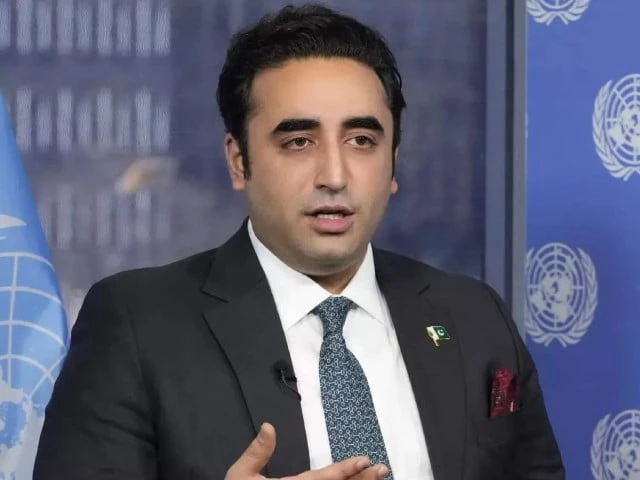——- Adds India’s suspension of IWT threatens regional peace
——- Asserts India against weaponising environmental resources
——- Presents Islamabad’s concern to European partners in Brussels
——- Wants region to prosper with bilateral trade, not ruin with war
DM Monitoring
Brussels: Former foreign minister and Pakistan Peoples Party (PPP) Chairman Bilawal Bhutto-Zardari on Friday once again criticised India’s decision to suspend the Indus Waters Treaty (IWT), calling it an “ille-gal and unilateral” move that threatens regional peace and stability.
Pakistan remains committed to resolving all outstanding issues with India through dialogue, the former foreign minister said during an address to a European think tank in Brussels.
A high-level Pakistani Parliamentary delegation, led by Bilawal, is currently in the European Union capi-tal of Brussels after successful visits to Washington, New York and London to debunk the Indian prop-aganda perpetrated after the recent conflict between the two countries.
On arrival in Brussels, the delegation was warmly welcomed by Pakistan’s Ambassador to the Europe-an Union, Belgium and Luxembourg Rahim Hayat Qureshi and officials posted at the Pakistani Embassy.
The purpose of the visit of the delegation appointed by Prime Minister Shehbaz Sharif is to present Pakistan’s position on the recent tensions with India and highlight the importance of resolving the Jammu and Kashmir issue in accordance with the resolutions of the United Nations Security Council and the wishes of the Kashmiri people, a news release said.
The PPP chairman said India’s actions amounted to weaponising environmental resources, which could have dangerous consequences.
Pakistan has exercised restraint in response to Indian provocations; any further attempt to block water flow would compel Islamabad to consider retaliatory measures, Bilawal warned.
“The suspension of the treaty is equivalent to disrupting peace in the region,” he said, warning New Delhi that Pakistan’s response would be inevitable if India continued on this path.
Addressing recent Pak-India tensions, he said that Islamabad had offered to investigate the Pahalgam incident, but New Delhi responded instead with “unprovoked aggression”.
“Modi government has yet to present any evidence regarding the Pahalgam attack,” the PPP chairman said.
Highlighting the need for regional stability, the former foreign minister stressed that peace in South Asia is closely linked to the resolution of the Kashmir dispute in accordance with United Nations Security Council (UNSC) resolutions.
He further warned that the current Indian government’s policies, particularly under Prime Minister Narendra Modi, are undermining peace efforts in the region.
“Pakistan has sacrificed thousands of lives in the fight against terrorism and continues to face cross-border threats, particularly in the aftermath of the evolving situation in Afghanistan,” he added.
On Middle East tensions, the PPP leader condemned Israel’s recent airstrikes on Iran, urging the global community to take immediate steps to de-escalate rising tensions in the Middle East.
“Global powers must act swiftly to prevent a full-scale war in the region,” he said and warned that in-stability in South Asia and the Middle East could have global repercussions.




